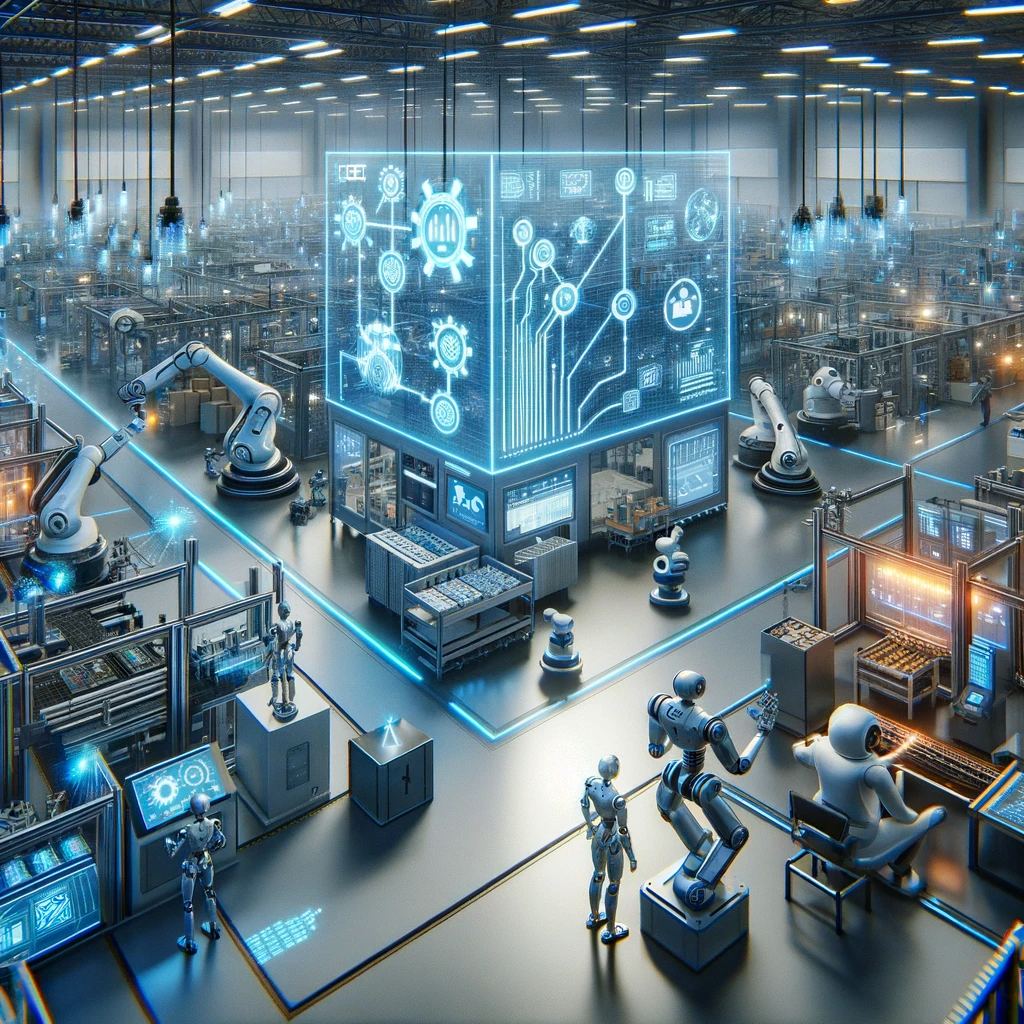Smart manufacturing, often referred to as Industry 4.0 or the Industrial Internet of Things (IIoT), is ushering in a new era of production processes. It leverages cutting-edge technologies and data-driven strategies to optimize and streamline manufacturing operations, marking a departure from traditional manufacturing approaches. As industries embrace this transformative wave, the future of smart manufacturing promises to bring significant changes and advancements.
1. IoT and connectivity
One of the foundational pillars of smart manufacturing is the widespread adoption of the Internet of Things (IoT). Manufacturers are increasingly deploying sensors and connected devices across their facilities to monitor and control machinery. This interconnected network of devices allows for real-time data collection and analysis, providing valuable insights into production processes. The seamless flow of data enables better decision-making, enhances efficiency, and reduces downtime.
2. Artificial intelligence and machine learning
Artificial Intelligence (AI) and Machine Learning (ML) are poised to play pivotal roles in the future of smart manufacturing. AI-driven predictive maintenance is a game-changer, as it can forecast when machinery requires maintenance, minimizing downtime and associated costs. Quality control and process optimization benefit from AI’s ability to analyze vast datasets and identify patterns, leading to higher product quality and increased efficiency.
3. Automation
Automation has been a driving force behind the transformation of manufacturing processes. The future of smart manufacturing will witness a continued expansion of automation. Robotics and autonomous systems will increasingly take on repetitive and labor-intensive tasks, allowing human workers to focus on more complex and creative aspects of production. This not only enhances efficiency but also reduces the margin for error.
4. Sustainability
Sustainability is a pressing concern across industries, and smart manufacturing is no exception. In the future, smart manufacturing will place a strong emphasis on eco-friendly practices. This includes resource optimization, waste reduction, and energy-efficient production processes. Manufacturers are actively seeking ways to reduce their environmental footprint while maintaining productivity and profitability.
5. Customization and personalization
Consumer demands are evolving, with an increasing desire for personalized and customized products. Smart manufacturing enables greater flexibility in production processes, making it possible to meet individual customer requirements efficiently. This level of customization can be achieved without sacrificing economies of scale, thanks to smart manufacturing’s agile and adaptable nature.
6. Cybersecurity
As manufacturing systems become more interconnected, the importance of cybersecurity cannot be overstated. The future of smart manufacturing will see a heightened focus on protecting sensitive data and production processes from cyber threats. Robust cybersecurity measures will be essential to safeguard intellectual property and maintain the integrity of manufacturing operations.
7. Human-machine collaboration
The synergy between humans and machines will continue to evolve in smart manufacturing. Technologies like augmented reality (AR) will assist workers in performing complex tasks with greater precision and efficiency. This enhanced collaboration between humans and machines enhances productivity and ensures the seamless integration of new technologies into the manufacturing ecosystem.
8. Supply chain integration
Smart manufacturing is not confined to factory floors; it extends its reach to supply chains. Future manufacturing systems will be closely integrated with supply chains, enabling real-time adjustments to meet changing demands. This integration fosters agility, reducing lead times and ensuring a more responsive approach to market dynamics.
9. Data analytics
In the age of smart manufacturing, data is a valuable asset. Advanced data analytics will be instrumental in extracting actionable insights from massive datasets generated by sensors and connected devices. Manufacturers will harness these insights to optimize processes, make informed decisions, and gain a competitive edge in their respective industries.
10. Predictive maintenance
Predictive maintenance, powered by data analytics and AI, is a cornerstone of smart manufacturing. Rather than relying on fixed schedules for maintenance, manufacturers will use data-driven predictions to determine when machinery needs attention. This approach minimizes unplanned downtime, reduces maintenance costs, and ensures continuous production.
Adapting to the future
While these trends provide a glimpse into the future of smart manufacturing, it’s important to note that the specific direction will vary by industry and company. Embracing these technological advancements is crucial for businesses looking to remain competitive and efficient in an ever-evolving manufacturing landscape. The future of smart manufacturing promises increased efficiency, sustainability, and adaptability, ultimately reshaping the way products are designed and produced.
The future of smart manufacturing is characterized by the convergence of cutting-edge technologies and data-driven strategies. IoT, AI, automation, sustainability, customization, and cybersecurity are among the key trends that will define this exciting journey towards more efficient, agile, and eco-conscious manufacturing processes.
Land a High-Paying Web3 Job in 90 Days: The Ultimate Roadmap
